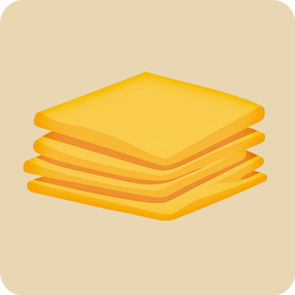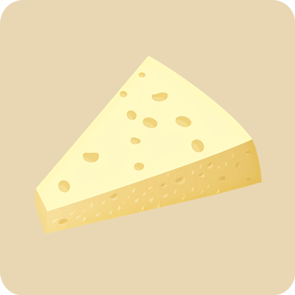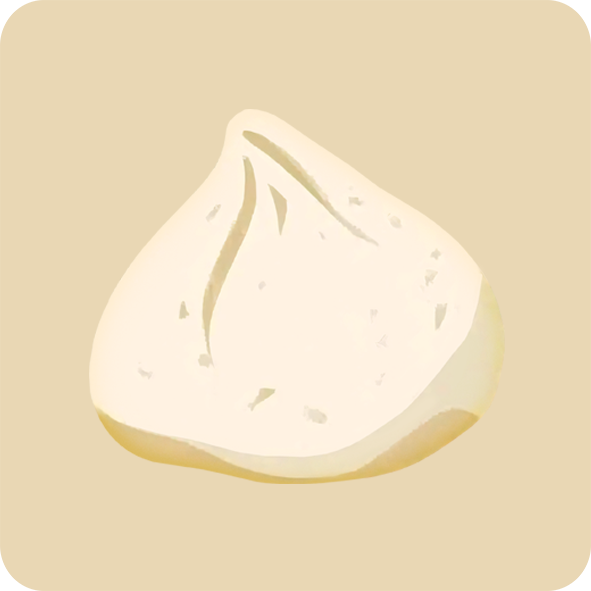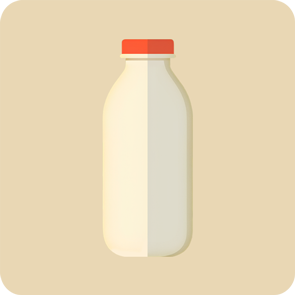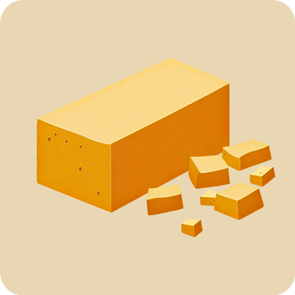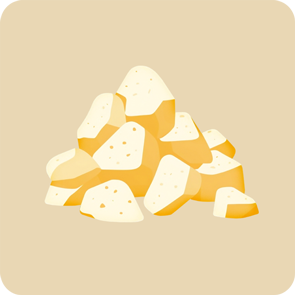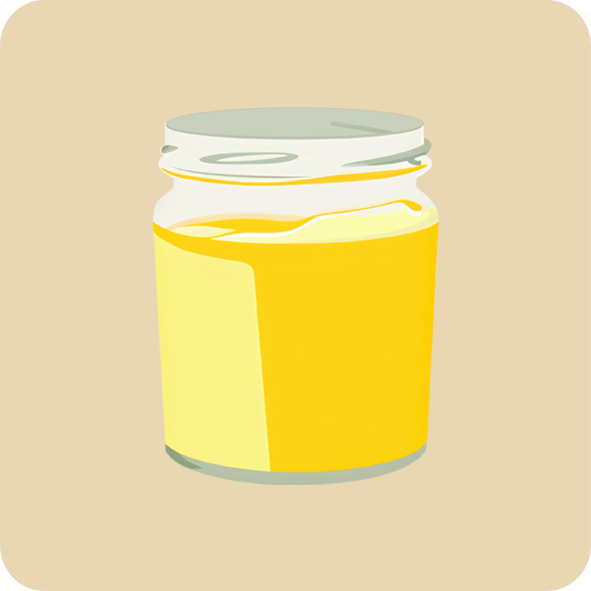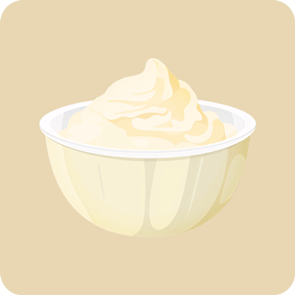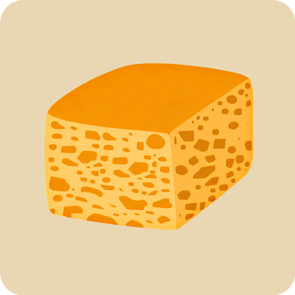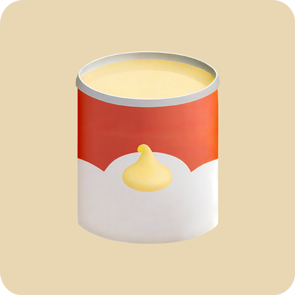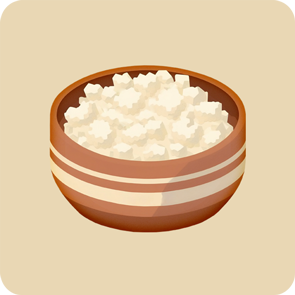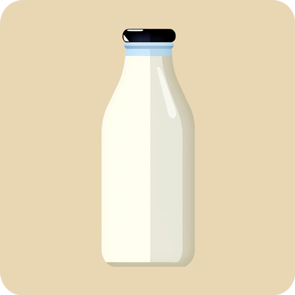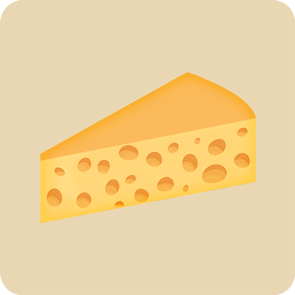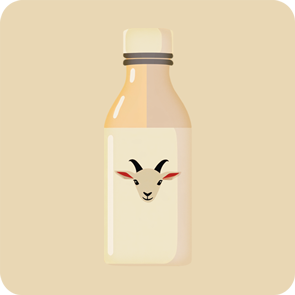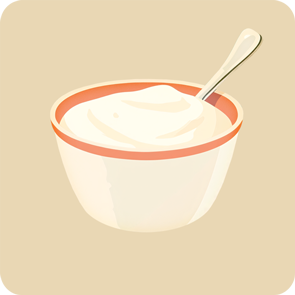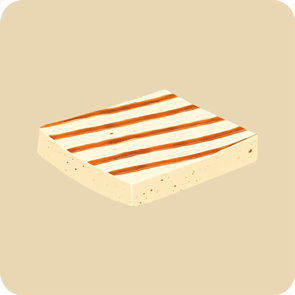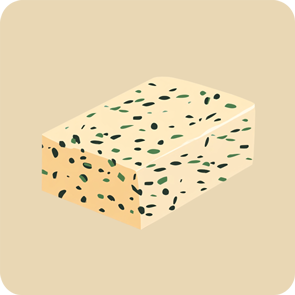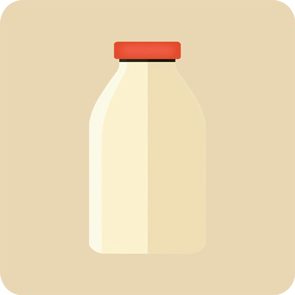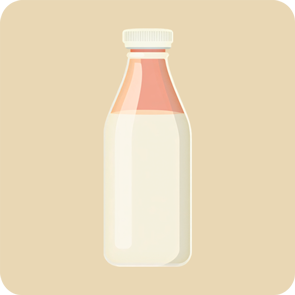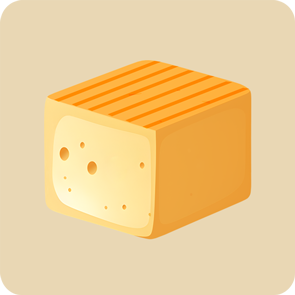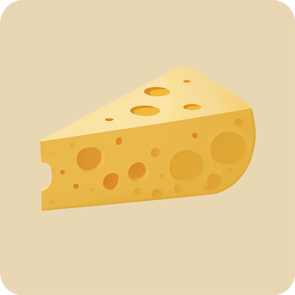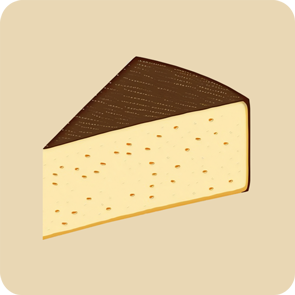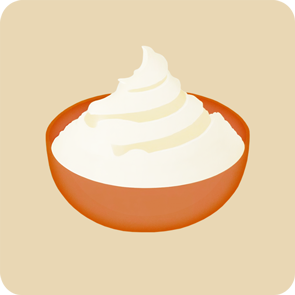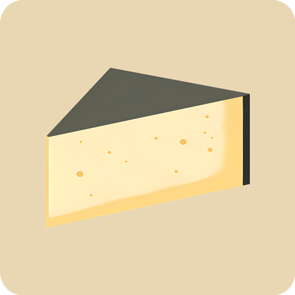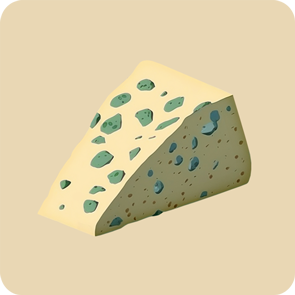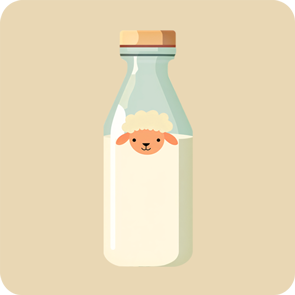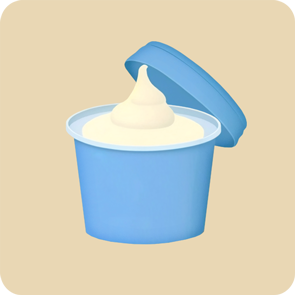
Cheese Spread

Condensed Milk

Cheese Curd
Cheese curds are small, fresh pieces of curdled milk with a mild, slightly tangy flavor and a springy, squeaky texture. They’re popular as a snack or in dishes like poutine.
185
½ cup
(65 grams)
CAL
D
Nutri-Score
Contains protein and calcium but high in saturated fat and sodium.
Value per 100 grams & per cup (130g):
370 kcal | 488 kcal
Protein
24 grams | 32 grams
Fats
30 grams | 40 grams
Carbohydrates
2 grams | 3 grams
Fiber
None
Vitamins & Nutrients
- Calcium: Essential for bone strength and muscle function.
- Vitamin A: Supports vision and immune system health.
- Phosphorus: Important for energy metabolism and bone health.
- Vitamin B12: Supports nerve function and red blood cell production.
Satiety and Feelings
Cheese curds provide a rich source of protein and fat, offering quick satiety and satisfying a craving for creamy texture. The low fiber content means fullness may not last very long.
What does 100 g look like?
About 3.5 ounces or roughly 1 cup of cheese curds.
What does 2000 | 2500 calories look like?
Approximately 5.5 cups or 725 grams (1.6 lbs) of cheese curds.
Daily Value per 100 grams %
Did you know?
Cheese curds are the fresh curds before they are pressed and aged into cheese blocks or wheels.
Known for their “squeaky” texture, which is a sign of freshness.
A key ingredient in the Canadian dish poutine, topped with gravy and fries.
They can be eaten fresh or deep-fried as a popular snack.
Drawbacks ⚠️
High in saturated fat, which may impact heart health if consumed in excess.
Contains a considerable amount of sodium, which can raise blood pressure if eaten frequently.
Low in fiber, so may not contribute to long-lasting fullness.

